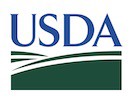 The U.S. Department of Agriculture (USDA) announced it has approved contracts for the additional purchase of Farmers to Families Food boxes. These contract awards are part of the fifth round of the program announced January 4, for deliveries through the end of April.
The U.S. Department of Agriculture (USDA) announced it has approved contracts for the additional purchase of Farmers to Families Food boxes. These contract awards are part of the fifth round of the program announced January 4, for deliveries through the end of April.
In total, USDA has distributed more than 133 million food boxes in support of American farmers and families affected by the COVID-19 pandemic.
The additional funding for the program was included in the COVID-19 relief package as part of the Consolidated Appropriations Act passed December 21, 2020. In this fifth round of purchases, USDA will again purchase combination boxes to ensure all involved recipient organizations have access to fresh produce, dairy products, fluid milk and meat products, and seafood products will also be included in this round.
The solicitation was issued to over 240 organizations that have previously received Basic Ordering Agreements (BOA). Deliveries will begin shortly after awards are issued and continue with option periods through the end of April. Additional BOA proposals were not reviewed nor accepted at this time. A complete list of BOA holders can be found here (PDF, 180 KB).
An amendment to the BOA will be issued to clarify the amount of acceptable processed meat products, to include seafood products and to clarify certain labelling requirements. Pre-cooked seafood products are now eligible for food box inclusion and can be aggregated with pre-cooked beef, pork, chicken and turkey products and egg or egg products to meet the existing material description weight requirements. In addition, USDA has emphasized that a variety of hard, semi-firm or semi-soft cheese, is acceptable in addition to cheddar and other cheeses specified in the solicitation.
The Farmers to Families Food Box program is part of the Coronavirus Food Assistance Program (CFAP), which was developed in response to the COVID-19 pandemic. Using authority provided by the Families First Coronavirus Response Act, USDA partnered with national, regional and local distributors, whose workforces were significantly impacted by the closure of restaurants, hotels and other food service businesses, to purchase and distribute agricultural products to Americans in need.
Source: USDA
